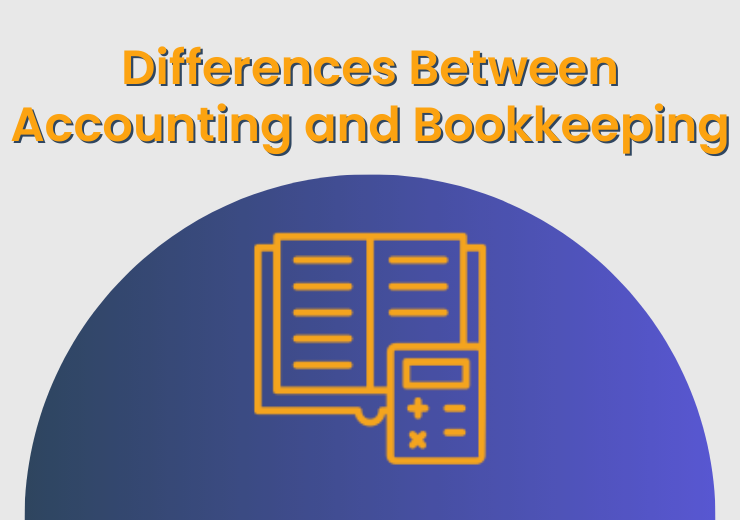In the world of finance and business, two terms that are often used interchangeably but hold distinct roles are “accounting” and “bookkeeping.” In this article, we will delve into the depths of both fields, exploring their differences, similarities, and the vital roles they play in the business world.
What is Accounting?
Types of Accounting
Accounting, in its essence, is the process of collecting, organizing, and interpreting financial data. It provides a comprehensive picture of a company’s financial health, making it a fundamental element of any business. There are several types of accounting, including financial accounting, managerial accounting, and tax accounting, each serving specific purposes within an organization.
The Role of an Accountant
Accountants play a pivotal role in a company’s financial management. Their responsibilities include preparing financial statements, managing budgets, conducting audits, and offering financial advice. They are essential for decision-making, ensuring compliance with financial regulations, and providing a clear financial roadmap for a business.
Bookkeeping: The Basics
Key Functions of a Bookkeeper
On the other hand, bookkeeping is the foundation upon which accounting stands. It involves the systematic recording of financial transactions, ensuring accuracy and organization. Bookkeepers are responsible for maintaining ledgers, reconciling accounts, and tracking income and expenses. They provide the data accountants need to create financial reports and make informed decisions.
Differences Between Accounting and Bookkeeping
While accounting and bookkeeping are closely related, they differ in various ways.
- Distinct Roles and Responsibilities: Accountants are involved in high-level financial analysis and decision-making, while bookkeepers focus on data entry and maintaining financial records.
- Skill Sets Required: Accountants typically need a higher level of education and possess advanced analytical skills. Bookkeepers, on the other hand, require strong attention to detail and organization.
Common Misconceptions
Before we delve deeper into the differences between these two fields, let’s address some common misconceptions. It’s not unusual for people to assume that accounting and bookkeeping are synonymous, but in reality, they serve distinct purposes in the financial landscape.
Key Similarities
Despite their differences, accounting and bookkeeping share common ground. They are both essential for the smooth functioning of a business and work together to provide a complete financial picture. While accountants focus on analysis, bookkeepers ensure data accuracy, making them complementary to each other.
Choosing the Right Path
When considering a career in finance, it’s essential to choose the path that aligns with your interests and goals. Factors to consider include your educational background, career aspirations, and the specific skills you bring to the table.
Education and Certification
The educational requirements for accounting and bookkeeping differ. Accountants usually need a bachelor’s degree in accounting or a related field and often pursue certifications such as Certified Public Accountant (CPA). Bookkeepers may need a post-secondary certificate or associate’s degree in bookkeeping.
Salary and Career Opportunities
Earnings and career opportunities in accounting and bookkeeping can vary widely based on factors like location, experience, and qualifications. Generally, accountants tend to earn higher salaries due to their advanced roles and responsibilities.
Automation and Technology
Advancements in technology have significantly impacted both accounting and bookkeeping. Automation tools and software have streamlined many processes, increasing efficiency and reducing the margin for error in data entry and analysis.
Importance for Businesses
Both accounting and bookkeeping are critical for businesses of all sizes. They provide essential financial insights, enable informed decision-making, and ensure compliance with tax regulations. Small businesses may primarily rely on bookkeepers, while larger enterprises require a team of accountants to manage complex financial operations.
Hiring a Professional
Knowing when to hire a professional can be challenging for business owners. Small businesses may benefit from outsourcing bookkeeping tasks, while larger corporations often have in-house accountants. The key is to find a professional who aligns with your specific business needs.
Challenges and Future Trends
Both fields face challenges, including staying updated with evolving regulations and adapting to new technologies. Looking to the future, trends such as cloud accounting and data analytics are likely to reshape the financial landscape.
Conclusion
In conclusion, accounting and bookkeeping are distinct yet interdependent aspects of the financial world. Understanding the differences and similarities between them is crucial for individuals considering a career in finance and for businesses seeking financial stability and growth.
Get Access Now: https://bit.ly/J_Umma
FAQs
-
Is bookkeeping a subset of accounting?
- While bookkeeping is a crucial part of accounting, they are not the same. Bookkeeping focuses on data entry and organization, while accounting involves analysis and decision-making.
-
What qualifications do I need to become an accountant?
- Typically, accountants need a bachelor’s degree in accounting or a related field. Many also pursue certifications like the CPA.
-
Can I use accounting software instead of hiring a bookkeeper?
- Yes, many businesses use accounting software to handle bookkeeping tasks. However, having a trained bookkeeper can ensure accuracy and compliance.
-
What are the advantages of outsourcing bookkeeping for a small business?
- Outsourcing bookkeeping can save time and reduce the risk of errors, allowing small business owners to focus on core activities.
-
How is technology changing the accounting and bookkeeping industry?
- Technology is automating routine tasks, improving data accuracy, and enabling real-time access to financial information, making the industry more efficient and data-driven.

